The Southwest Travel Guide
Experience The Southwest and French Basque Country’s coastal charm, cultural richness, and scenic landscapes. Ideal for travel in France.
The Southwest and French Basque Country captivates visitors with its contrasting coastal landscapes, mountain vistas, and lively local culture. The region offers a mix of seaside relaxation, scenic countryside, and traditional events that highlight local identity. Food lovers appreciate the unique gastronomy, from Basque chili peppers to hearty Southwest specialties. Surfers enjoy the Atlantic beaches, while hikers explore the Pyrenees. Artisans preserve time-honored crafts and share them through community gatherings. Warm hospitality invites travelers to connect with locals and experience age-old customs. This combination of nature, food, and cultural richness creates a memorable travel experience that appeals to all tastes.
The Southwest and French Basque Country lies along the Atlantic coast of southwestern France, bordering Spain and flanked by the Pyrenees. The region encompasses Nouvelle-Aquitaine and includes areas like Béarn and the Basque provinces. Its strategic location attracts people seeking coastal and inland beauty. Proximity to Spain fosters cultural exchanges and shapes local heritage. This blend of influences creates a dynamic area appealing to travelers interested in varied activities. Its importance for tourism is significant, thanks to a strong gastronomic reputation, beaches favored by surfers, and picturesque towns. Seasonal festivals draw visitors eager to see folk dances, local crafts, and music traditions. The combination of sea, mountains, and rural landscapes encourages outdoor pursuits, while historical sites and museums attract heritage enthusiasts. The region’s transport infrastructure, including airports in Biarritz and Bordeaux, rail connections, and highways, makes traveling accessible. This accessibility and diversity reinforce its standing as a prominent French destination.
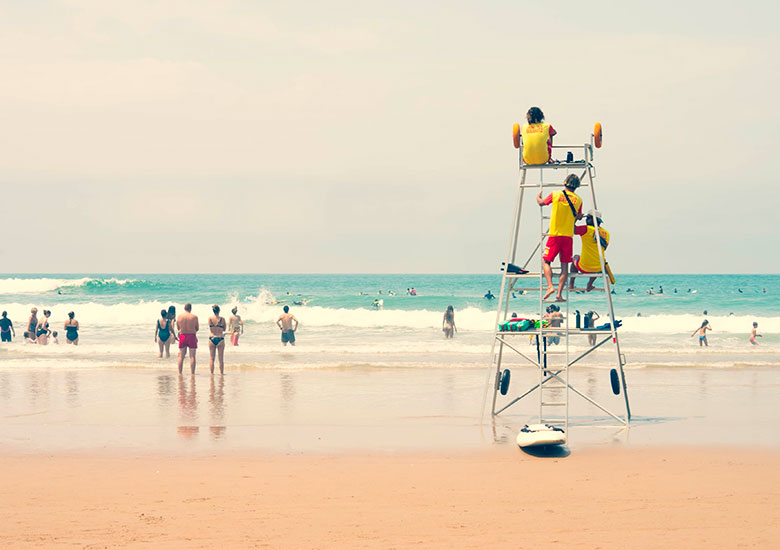
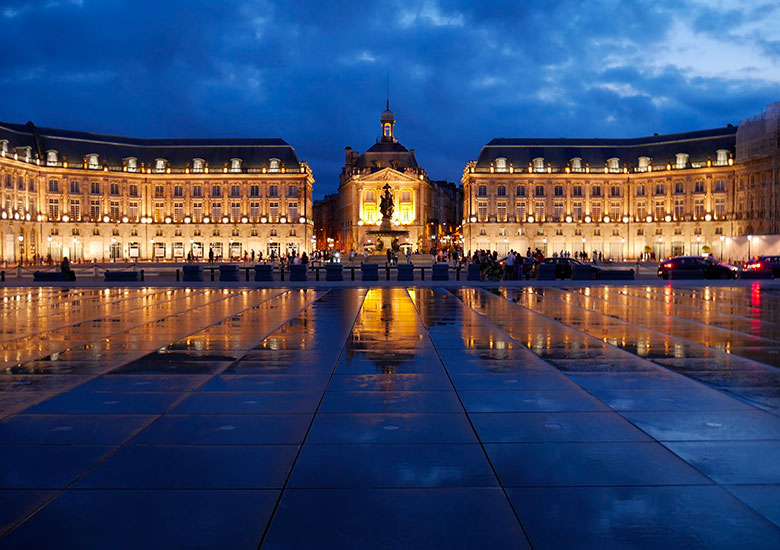
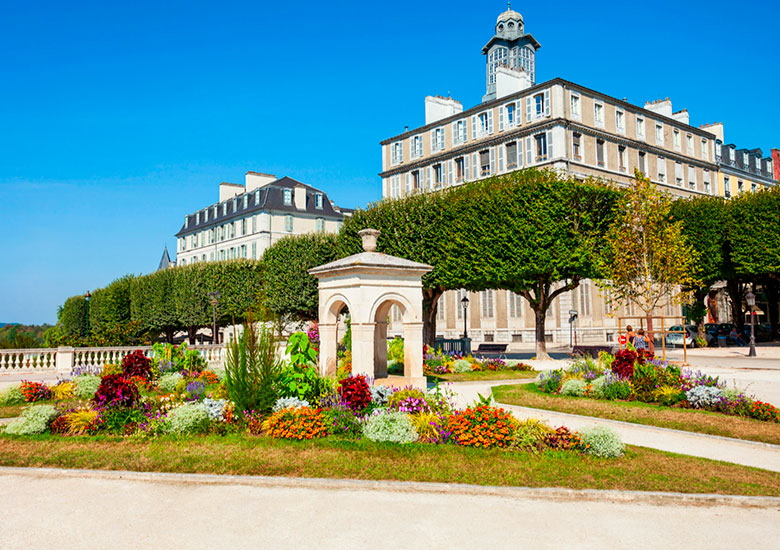
Why travel to The Southwest and French Basque Country
The Southwest and French Basque Country offers a blend of traditions, culinary delights, and scenic spots that create a varied travel environment. One reason to visit is the region’s deep cultural identity, shaped by Basque heritage and Gascon influences. The Basque language and customs are preserved in villages like Espelette and Saint-Jean-Pied-de-Port, where local markets and festivals highlight artisanal products. This cultural dimension resonates with curious visitors who seek immersion in time-honored lifestyles.
Another aspect is the area’s historical background. Bayonne, for instance, is recognized for its medieval ramparts, Gothic cathedral, and connections to maritime trade. In Béarn, the city of Pau features a castle linked to King Henri IV, reflecting the region’s royal ties. These landmarks reveal the significance of southwestern France as a historic crossroad between the Atlantic and the Pyrenees. Folklore thrives in community gatherings, with dance troupes performing age-old routines to the sound of traditional instruments.
Many travelers appreciate the relaxed pace of life in these towns. Street cafés, riverside walks, and local shops invite exploration at a slower speed. The coast also offers highlights, such as Biarritz, known for surfing culture and Victorian-era villas. Inland, small farms produce cheeses and cured meats that appear on local menus, exemplifying strong gastronomic heritage. Meanwhile, sports like rugby hold a prominent spot in Southwest communities, reflecting a passion for team spirit and friendly competition.
For anyone looking for a vacation that combines culture, nature, and authentic regional flavors, The Southwest and French Basque Country stands out. Every village has a story to share, from ancient legends to modern celebrations. These diverse elements make traveling in France more rewarding, with this region offering a unique slice of local history and strong community connections that remain vibrant today. Travelers gain insights into France’s southwestern spirit by engaging with these communities.
Main cities and accesses
Key urban centers in The Southwest and French Basque Country include Bordeaux, Pau, Bayonne, and Biarritz. Bordeaux is known for its wine heritage, squares, and easy access to nearby vineyards. A high-speed train (TGV) from Paris reaches Bordeaux in about two hours, with ticket prices ranging from €30 to €90 depending on the season. Pau offers scenic views of the Pyrenees and can be accessed by regional trains from Bordeaux or Toulouse, with average fares around €20. Bayonne serves as a cultural hub, featuring half-timbered houses and an old town. Travelers can arrive by train from major French cities or by car via the A63 motorway.
Biarritz is popular for surfing and coastal scenery. It is 30 minutes by car from Bayonne or an hour from Pau. Flight connections to Biarritz Airport come from French and European cities, costing €50-€150 one-way. For regional exploration, bus networks run between towns, with fares typically under €5. Car rentals start at €30 a day, allowing flexibility for visiting rural villages or the Pyrenees. Distances are moderate, so driving from Bordeaux to Biarritz takes about two hours. These options make traveling in The Southwest and French Basque Country convenient and adaptable to varied budgets.
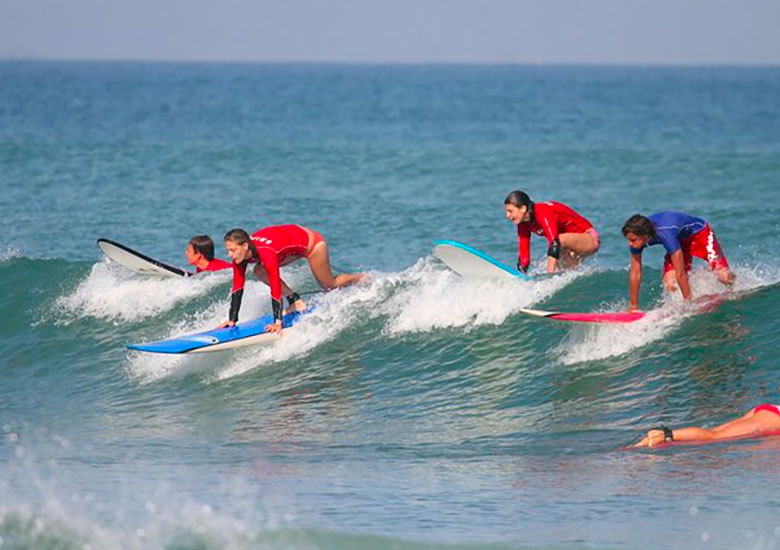
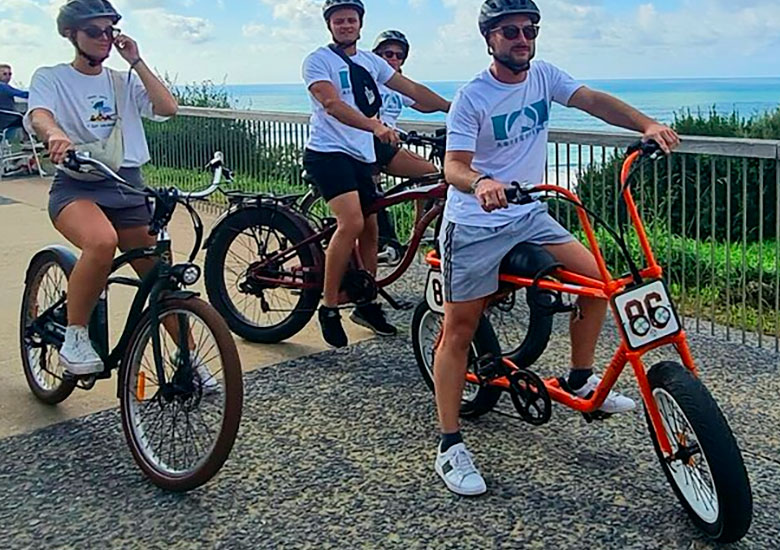
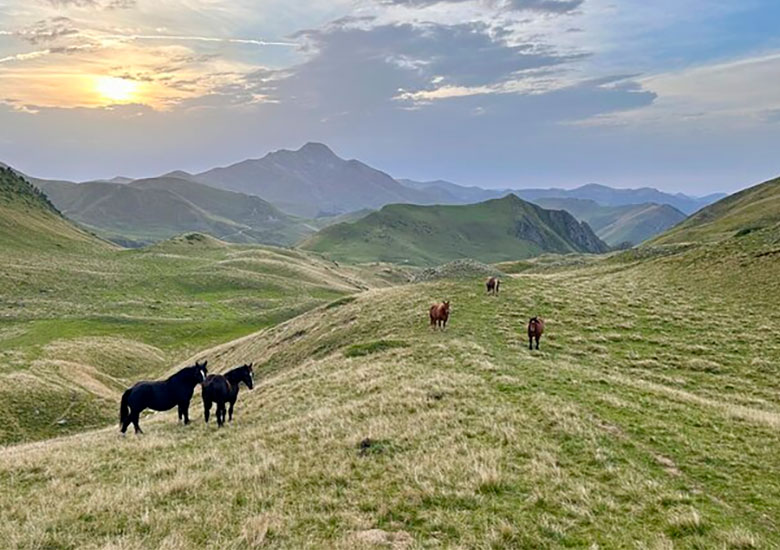
Local Attractions and Landmarks
Bordeaux’s historic center is recognized for its 18th-century architecture. The Place de la Bourse is a central square featuring the Miroir d’Eau, a shallow water display that reflects the surrounding buildings. Access is free year-round, though it is most picturesque in spring and summer.
In Bayonne, the Cathédrale Sainte-Marie and its cloister showcase Gothic artistry. Admission is free, and it is open daily, with slightly reduced hours on Sundays. Nearby, the Musée Basque et de l’Histoire de Bayonne charges around €7 and covers Basque heritage, local traditions, and maritime history. Bayonne’s old town is also known for its chocolate shops, many offering tastings and workshops.
On the coast, Biarritz presents the Rocher de la Vierge, a rock formation connected by a footbridge, offering panoramic views of the Atlantic. This spot is accessible any time without a fee. For a deeper insight into marine life, the Biarritz Aquarium charges about €15 for adults and is open daily. Evenings feature music events along the waterfront.
Further south, Saint-Jean-de-Luz has a charming pedestrian center and the Maison Louis XIV, where the king stayed before his wedding. Entry costs approximately €5, and guided visits operate from April to October. The adjacent fishing port offers seafood stands and lively quayside walks.
Inland, the Gorges de Kakuetta in Sainte-Engrâce draw hikers to narrow canyons, waterfalls, and lush vegetation. The trail is open from spring through early autumn, with an entrance fee of around €6. The walk takes about two hours, so comfortable shoes are recommended.
For architecture enthusiasts, Pau’s Château de Pau reveals Renaissance interiors and a collection of tapestries. Entrance tickets start at €7, and guided tours are available in French and sometimes English. The castle gardens provide a viewpoint of the Pyrenees.
Between city highlights and natural sites, there is ample variety for those wondering what to do in The Southwest and French Basque Country. Peak months, especially July and August, see more crowds, so visiting in late spring or early autumn can offer milder weather and shorter lines. Most museums open six or seven days a week, typically from mid-morning to late afternoon.
Activities and Experiences in The Southwest and French Basque Country
Outdoor enthusiasts have options in The Southwest and French Basque Country. The Atlantic coast provides good surfing conditions, especially around Hossegor, Capbreton, and Biarritz. Boards can be rented for about €20-€30 a day, and lessons range from €30 to €50 per session. Hiking is popular in the Pyrenees, with trails like GR10 offering routes for varying levels. Mountain biking and paragliding are also available in designated areas. Summer months have warmer weather, but spring or autumn might be less crowded.
Cultural events are a key aspect of the region. Fêtes de Bayonne in late July bring processions, music, and street entertainment for five days. Traditional pelota matches are common in Basque villages, showcasing a sport played in open-air courts. Local crafts, including espadrilles and ceramics, are displayed at weekly markets. Visiting these stalls is an opportunity to meet artisans and understand the region’s creative side. Some villages hold txalaparta demonstrations, featuring a percussion instrument central to Basque musical heritage.
Regional activities often highlight gastronomy. Wine tastings in Bordeaux are a draw, with half-day tours starting at around €50. Cheese workshops in rural farms near Ossau or the Iraty region provide insights into production techniques, with hands-on opportunities to learn about ripening and aging. Foie gras producers in Landes offer guided visits, showing how geese and ducks are raised before the product is processed. Culinary festivals celebrate piment d’Espelette, a key Basque spice used in many local recipes.
Beaches serve as a hub for relaxation and recreation. In addition to surfing, swimming and paddleboarding are common, with lifeguards present during peak season. Coastal paths invite joggers and cyclists to follow the shoreline while enjoying sea views. Inland areas cater to fishing enthusiasts, particularly in rivers stocked with trout and salmon.
Many experiences cater to families, couples, or solo travelers, so it is wise to plan according to personal interests. For those looking for immersion, local tour guides can organize thematic routes focusing on food, history, or craft traditions. Whether searching for pursuits or cultural learning, traveling in The Southwest and French Basque Country provides options that fit a range of preferences.
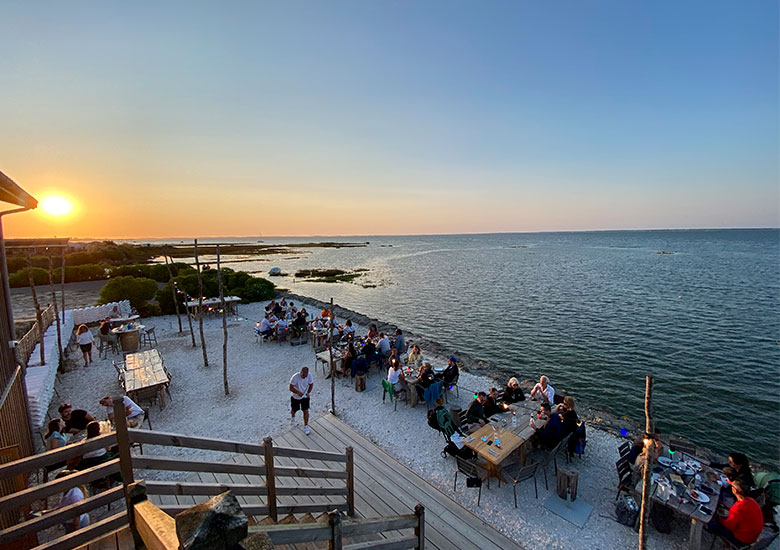
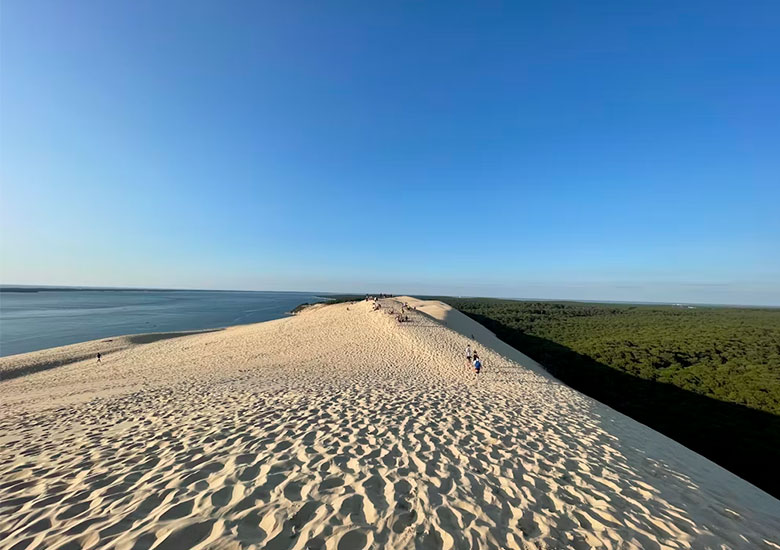
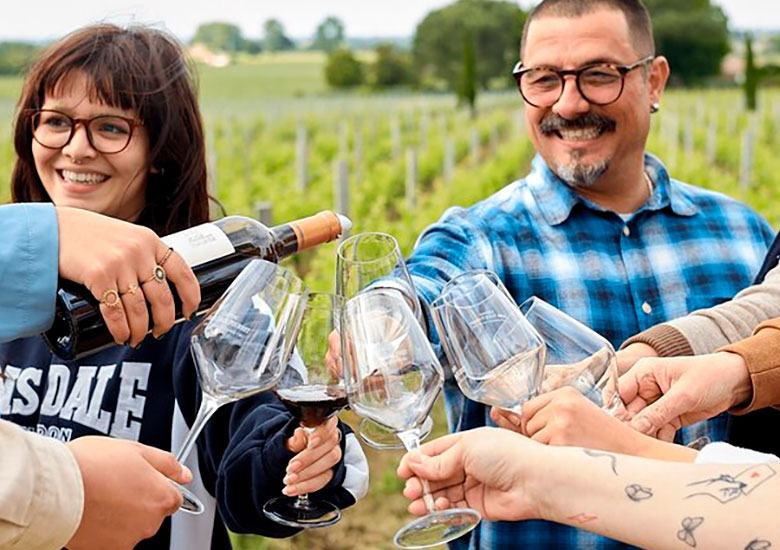
Food and Cuisine
Food in The Southwest and French Basque Country carries flavors, focusing on fresh ingredients from land and sea. Foie gras and confit de canard are specialties often associated with Gascony, while the Basque influence appears in dishes like axoa, a veal or beef stew. The coastline offers Atlantic fish and seafood, with chipirons (baby squid) served in garlic and parsley sauce. Local charcuterie is another highlight, especially Bayonne ham, which matures in local curing sheds.
Cheese is a major component, with Ossau-Iraty a standout variety made from sheep’s milk. This cheese has a rich, nutty taste and is often served with black cherry jam. In Béarn, hearty stews like garbure, made with cabbage and confit meats, reflect the region’s cooking style. Markets and restaurants also feature seasonal produce such as peppers, tomatoes, and beans, giving dishes vibrant color and flavor.
For drinks, cider and local wines are popular. The area around Jurançon, near Pau, produces sweet and dry whites, while Irouléguy, in the Basque foothills, offers reds and rosés. Craft breweries have emerged, too, with batches highlighting local grains, creativity. Restaurants range from Michelin-starred establishments in Biarritz or Bayonne to family-run bistros in remote villages. Many offer prix-fixe menus starting around €20 at lunchtime, giving travelers a chance to try regional dishes.
Street food and casual eats include talos, a Basque corn flatbread, and crêpes filled with chocolate or jam. Exploring the culinary scene is a way to appreciate the traditions and innovations of The Southwest and French Basque Country.
Where to stay in The Southwest and French Basque Country
Accommodation in The Southwest and French Basque Country suits various budgets. Grand Hôtel Thalasso & Spa in Saint-Jean-de-Luz is praised for its seaside location and wellness facilities, with rooms starting at €180 per night. In Biarritz, Hôtel de Silhouette sits near the beach and streets, offering charm from around €150 nightly. Travelers seeking budget options can consider Ibis or Première Classe hotels in Bayonne or outskirts of Bordeaux, typically below €60.
For a rural setting, Chambres d’Hôtes (bed and breakfasts) are abundant in areas like Béarn or the Basque countryside. These family-run houses, such as Maison Arbolateia in Bidart, give insight into local lifestyles and cost around €80-€100. Vacation rentals are another choice, for groups wanting full apartments or cottages. Websites list properties in Capbreton, Hossegor, and villages, with prices starting near €70. Booking early is advised for peak season, July and August.
Hostels are less common but can be found in larger towns. Central Hostel in Bordeaux offers beds from about €25. Camping sites near the coast or in the Pyrenees region provide experiences at lower costs, under €30 per pitch. Whether prioritizing comfort or affordability, traveling in The Southwest and French Basque Country allows for plenty accommodation options.
Back to our DESTINATIONS